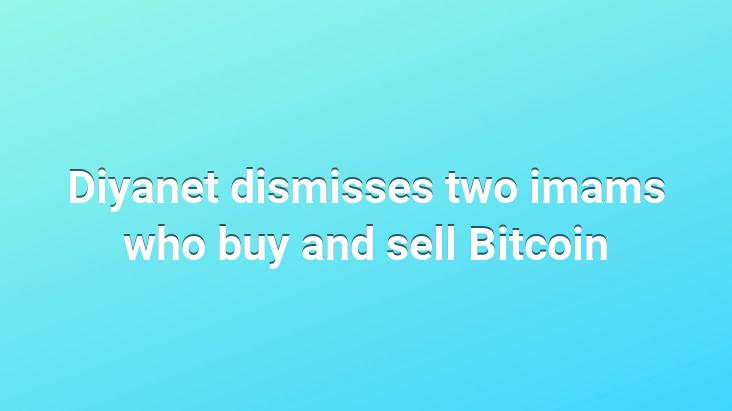Diyanet dismisses two imams who buy and sell Bitcoin
The Presidency of Religious Affairs dismissed two imams after they complained that they were buying and selling Bitcoin.
The imams of Aziziye Mosque and Dereköy Mosque in Zonguldak, Mecit K.. and Sold B. A complaint was filed with the provincial mufti on the allegation that they bought and sold Bitcoin over the internet.. After the complaint, Diyanet launched an investigation on the issue.. The inspectors assigned by the Diyanet, two imams, Mecit K.. and Satilmis B.
Zonguldak Provincial Mufti Rüstem Can, speaking to DHA, also confirmed the dismissal and said, “There was an investigation 3-4 months ago.. Then they were dismissed. The news is true.” He said.
Diyanet said ‘It is not permissible’ in January
The Presidency of Religious Affairs issued a fatwa saying ‘It is not permissible’ regarding Bitcoin in January.
<
The expressions used in the statement of Diyanet, which said, “The use of digital cryptocurrencies that cause unjust and unjust enrichment of certain segments, such as practices known as ‘pyramid schemes’ in the public, is not permissible,” were as follows:
It is permissible to use all kinds of money, which is generally accepted as a measure of value and gives confidence to the users due to its source.. At this point, the important point is whether the medium of exchange known as money contains great uncertainty in its essence, that is, in the form of production, release stages and the nature of the addressee, whether it is used as a deception) and whether it is conducive to the unjust and unjust enrichment of a certain segment.
It is necessary to evaluate the provision of using each of the digital-crypto currencies, which have emerged in recent years and have many types, in line with the above general principles.. Accordingly, it is not permissible to use digital cryptocurrencies, which have serious uncertainties in their essence, have a high risk of deception and deception, thus do not have any security and cause unfair and unjustified enrichment of certain segments, such as practices known as the ‘Policy chain’ in the public.”
